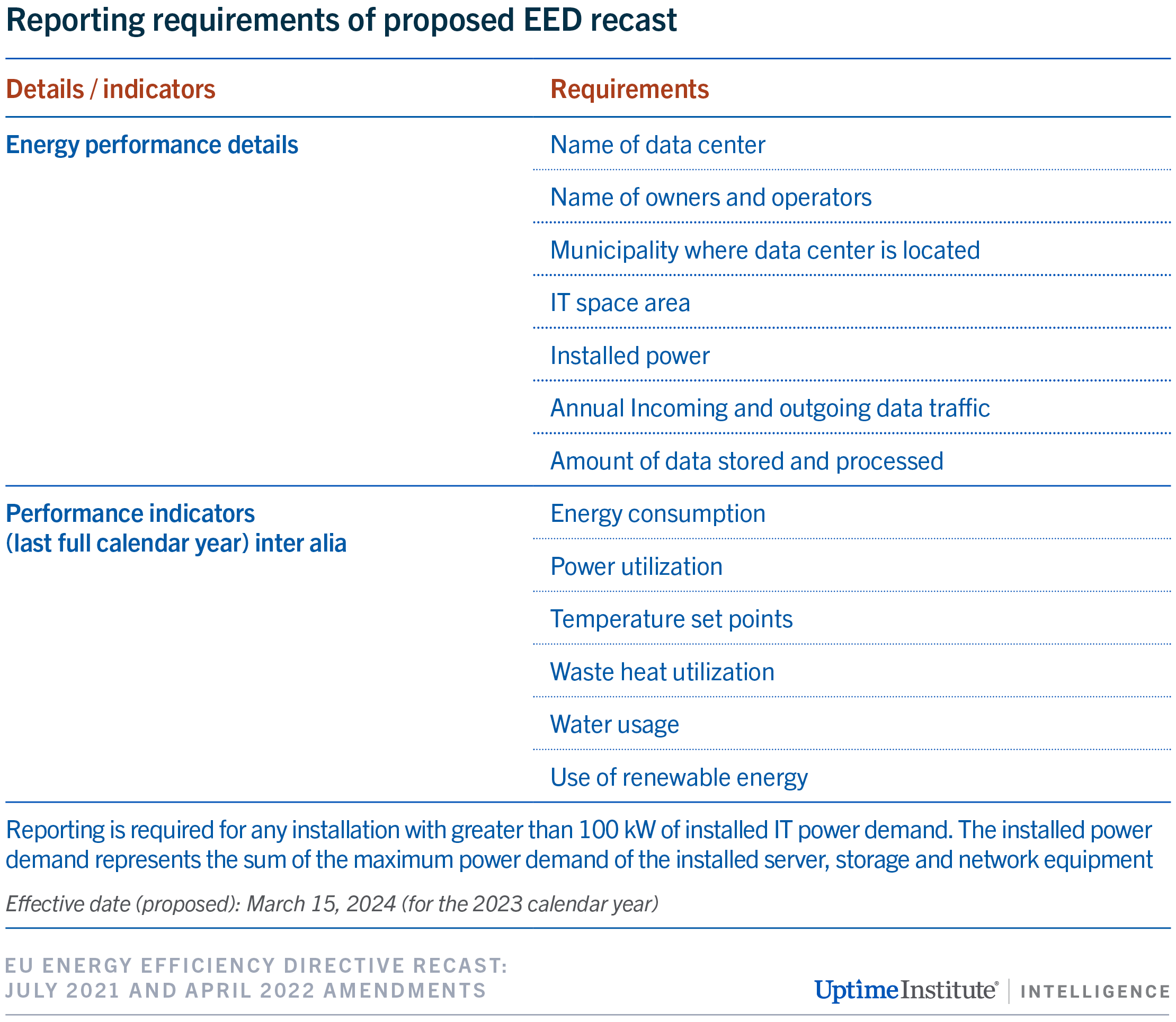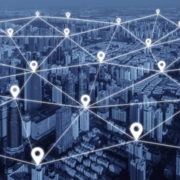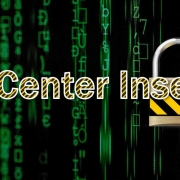EU’s EED recast set to create reporting challenges
The European Commission’s (EC’s) proposed recast of its Energy Efficiency Directive (EED) sets out new and strict reporting requirements for data centers operating in the EU. If passed, data centers with 100 kilowatts or more total installed IT power demand (from server, storage and network equipment) will have to report their energy performance every year, including details on data traffic, quantity of data stored, water use, energy consumption, heat re-use and power utilization (see Table 1).

These reporting requirements raise several concerns for data centers. One concern is that some of the information is simply difficult to collect — at least for some. Most colocation operators do not currently have control or insight into the data traffic, storage and processing being performed on their customers’ IT equipment. For example, it will be challenging for a large retail colocation data center to collect, normalize and aggregate data from tens or hundreds of IT operators with different data collection and management systems into a coherent, accurate and standardized report.
Some parties have also raised concerns about the security risks associated with publicly reporting the names of owners, addresses and other details of data centers — information that is particularly sensitive for financial institutions. At present, it is relatively easy to find the location of data centers, but far more difficult to find details of the owners and operators of those data centers. Other parties are concerned about the administrative and financial burdens imposed on smaller operators.
While some data center operators have welcomed further transparency regarding their energy use, but argue against some of the proposed metrics. Feedback from DigitalEurope, a trade association representing the digital technology industry in Europe, notes that data traffic, processing and storage is unrelated to data center sustainability, as well as being commercially sensitive information. Apart from which, servers account for most data center energy use, yet the new EED makes no attempt to gather indicative data on server power efficiency. This is a missed opportunity to tackle the single largest cause of energy inefficiency in data centers.
As part of the proposed EED recast, the EC is planning mandatory annual reporting of key performance indicators (KPIs). The aggregated data will be used to develop sustainability indicators based on energy efficiency, use of renewable energy, water usage and waste heat utilization (see Table 1). These indicators will be used to define and rate a data center in terms of sustainability.
The EC hopes that by creating a register of energy use based on performance indicator reporting, opportunities for the data center industry to reduce energy consumption and increase efficiency can be identified and encouraged. It also hopes that future sustainability ratings developed from the KPIs will help to provide transparency of and accountability for data center carbon footprints. In time, stakeholders may come to expect this data from operators when evaluating business decisions in the EU.
The stakes are particularly high when it comes to defining renewable energy usage in terms of these KPIs. The legislation is currently unclear as to how the use of carbon offsets (such as guarantees of origin or renewable energy certificates) will be treated in audits or in developing sustainability ratings. Ideally, the ratings should assess the direct use of renewable and zero-carbon energy (as supplied throughout a grid region or through power purchase agreements) to accurately depict a data center’s energy use and carbon footprint. Without greater clarity, the impact of the proposed reporting requirements may instead depend on how the proposed legislation is interpreted by governments or operators.
For more information, see our recent report Critical regulation: the EU Energy Efficiency Directive recast.








 2020
2020

